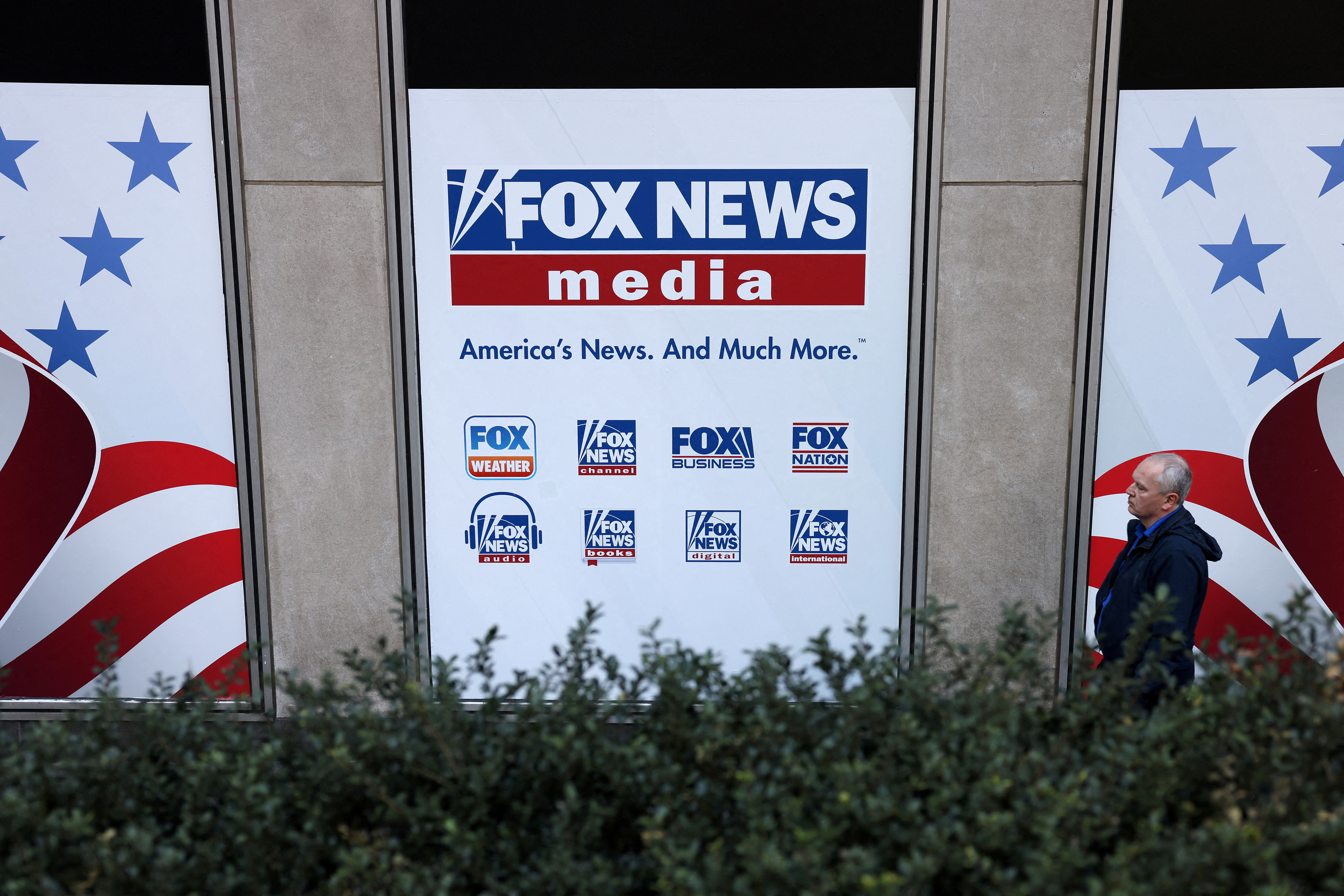WILMINGTON, Delaware, April 18 (Reuters) – Dominion Voting Systems has filed a $1.6 billion defamation lawsuit against Fox Corp ( FOXA.O ) and Fox News, with jury selection beginning on Tuesday. Putting one of the world’s leading media properties in the crosshairs.
Anticipation for the day has been building since Denver-based Dominion sued in 2021 over Fox’s airing of false claims that the Denver-based company’s vote-counting machines were used to favor Democrat Joe Biden in the 2020 U.S. presidential election. President Donald Trump.
Jury selection has resumed in Wilmington after a one-day delay ordered by Delaware Superior Court Judge Eric Davis. That process is expected to move quickly, setting the stage for lawyers from both sides to make initial statements to a 12-member panel.
Journalists and potential jurors lined up outside the courtroom early in the morning ahead of the day’s proceedings.
Adding to the drama is the fact that 92-year-old media mogul Rupert Murdoch, who serves as chairman of Fox Corp., is set to testify at the trial, joined by Fox executives such as CEO Suzanne Scott and on-air hosts. Including Tucker Carlson, Sean Hannity and Jeanine Brough.
The judge did not give a reason for the 24-hour delay, but two sources told Reuters that Fox and Dominion were holding last-minute settlement talks. Fox and Dominion could still settle the case. Fox faces a massive verdict, as Dominion is asking for punitive damages in any amount jurors deem appropriate.
Dominion sued Fox Corp. and Fox News in 2021, claiming its business was ruined by false vote-rigging claims aired by the influential U.S. cable news network known for its roster of conservative commentators.
The primary question for jurors is whether Fox knowingly spread false information or ignored the truth, the “actual harm” standard that Dominion must show to win a defamation case. Based on internal communications, Fox employees, from newsroom staff to Murdoch, known The reports were false but continued to air them for fear of losing viewers to media rivals on the right.
The trial is seen as a test of whether Fox’s coverage crosses the line between ethical journalism and the pursuit of ratings, as Dominion alleges and Fox denies. Fox has portrayed himself as a defender of press freedom in the pre-trial standoff.

[1/2] A man walks by the Fox News sign at the News Corporation building in New York City, April 12, 2023 REUTERS/Andrew Kelly/File Photo
Second defamation suit
Adding to the legal risks for Fox, another US voting technology company, Smartmatic, has filed its own defamation suit in New York state court seeking $2.7 billion in damages.
Fox Corp shareholders are demanding company records that show whether directors and executives properly oversaw Fox News’ coverage of Trump’s election fraud claims, sources told Reuters, which could be a precursor to lawsuits seeking to hold directors accountable for costs.
Fox Dominion’s $1.6 billion in damages is unrealistic and based on flawed economic modeling. An expert report commissioned by Dominion attributes the lost contracts to Fox’s coverage, though much of the report remains under seal.
In Sunday’s filing, Fox said Dominion had agreed to drop more than $500 million in damages. A Dominion spokeswoman denied the claim and said its damages claim remained unchanged.
Fox Corp had annual revenue of nearly $14 billion last year.
Dominion said defamatory statements about it were aired on Fox shows including “Sunday Morning Futures,” “Lou Dobbs Tonight” and “Justice with Judge Jeanine.”
Dominion also cited evidence that some hosts and producers thought guests who spread false reports, including former Trump lawyers Rudy Giuliani and Sidney Powell, could not back up their allegations.
Fox argued that vote-rigging claims are inherently newsworthy and protected by the U.S. Constitution’s First Amendment guarantee of freedom of the press. Davis rejected that argument in a ruling last month.
Reporting by Helen Koster in Wilmington and Jack Quinn in New York; Editing by Will Dunham
Our Standards: Thomson Reuters Trust Principles.